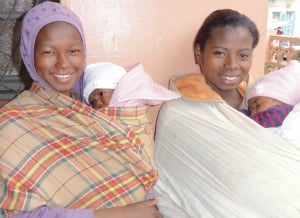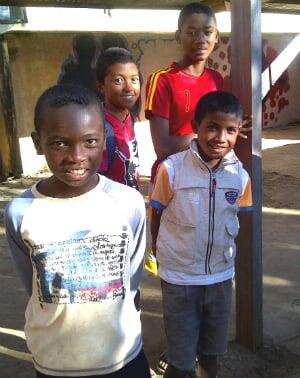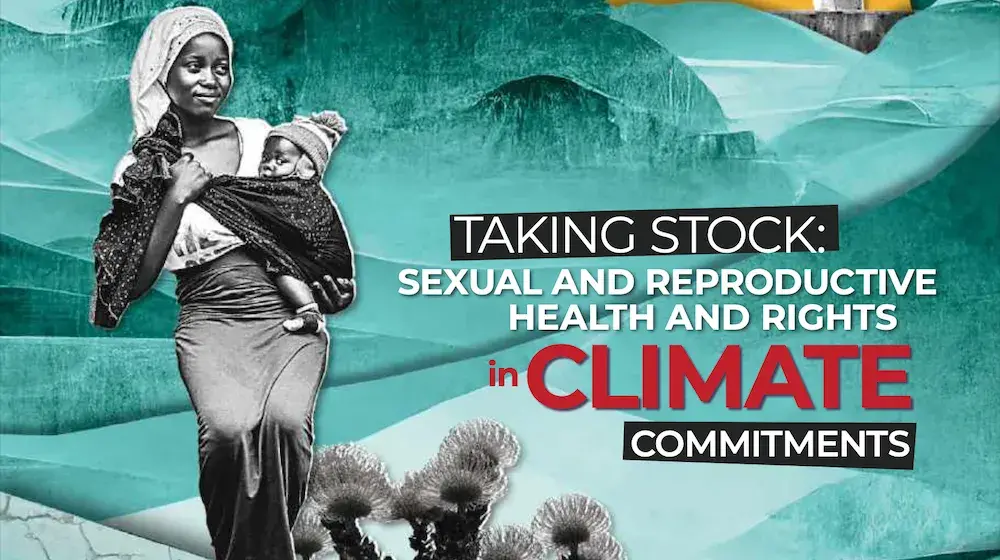MADAGASCAR — Madagascar is a striking success story of how to improve family planning and reproductive health despite facing severe difficulties. The use of modern contraception tripled over a ten-year period – from 9.7 per cent (1997) to 29.2 per cent (2008-09) – beating the government’s ambitious goal of a contraceptive use rate of 28 per cent by 2009.
What was key to their success?
How did it manage to achieve such tremendous results despite the country’s high rate of poverty, a largely rural population, transport difficulties due to poor infrastructure, and the political crisis of 2009? This is a story of a government turning its words and written commitments into action to help its people. It is also an example of how successful programmes can be continued even during times of crisis and conflict.
Working together to reach national goals
Many players were involved and supported the government’s efforts, from international and local NGOs to donors, such as the United Nations Population Fund (UNFPA) and the United States Agency for International Development (USAID). These groups worked together, taking advantage of each organisation’s comparative advantage, to achieve national goals.

At the heart of the programme’s success was the importance of ensuring sufficient equipment, pharmaceuticals and contraception. These included equipment, pharmaceuticals and supplies for obstetric and maternal health care; the prevention, diagnosis and management of reproductive tract infections and sexually transmitted infections; and contraceptive supplies including male and female condoms.
This story shows UNFPA’s Global Programme to Enhance Reproductive Health Commodity Security in action at the country level. UNFPA began implementing the five-year programme in Madagascar in 2007. It provided a structure for moving beyond ad hoc responses to a more predictable, planned and sustainable approach for securing essential supplies and ensuring their use.
Lessons learned for getting results
The key reasons that the programme achieved such tremendous success are as follows:
1. Government involvement is critical
Government commitment and supportive policies are key to meeting national health goals, with family planning and reproductive health clearly included in poverty reduction plans. Experts in Madagascar cite this as the main reason for successfully meeting the goal of increased contraceptive prevalence rate.
2. Improving logistics systems is key
The programme, along with other efforts, can help increase awareness of commodity security as a fundamental factor in the success of health programmes. A wide range of stakeholders and partners in Madagascar identified the improved logistics system as a key factor of its success.
3. Good software improves management
User-friendly software, like CHANNEL, can help improve the management of commodities, and their use in national programmes is feasible, acceptable and effective. Sensitising district managers is key to ensuring the use of the data.
4. Taking a wider focus
It is essential to integrate commodity management to move beyond a focus on contraceptives to a range of reproductive health commodities and other essential drugs. Madagascar has made important steps in this direction, including the development of a national strategic plan (PAIS); procurement by UNFPA of a range of commodities (not only contraceptives); and the use of CHANNEL software for many essential medicines.
5. UNFPA’s role in times of crises
UNFPA has a critical role to play in crisis situations. It is now the only donor supporting the Madagascar government’s obtaining of contraceptives. Without this, the contraceptive prevalence rate would most certainly have fallen in recent years, with a resulting negative health impact on women and children.
6. Choosing partners to access communities
The strategic selection and support of partners is key when it comes to hard-to-reach and underserved populations, so that those most in need can access reproductive health supplies and contraceptives. This includes using effective strategies such as outreach and the community-based distribution of contraceptives.
7. Working to increase the demand for contraception
The programme also invested in creating demand, a key factor in increasing contraceptive use.
8. Focusing on results
A results-based mentality in the MOH can greatly facilitate change, and this should be fostered and strengthened to ensure that best practices are used and expanded.

The programme has played an important role in strengthening Madagascar’s country programme, not only by donating contraceptives and other essential reproductive health supplies, but also by:
- strategically selecting and supporting partners to expand access
- building capacity to manage commodities and programmes
- creating greater efficiency through sharing lessons
- leveraging its resources and influence.





